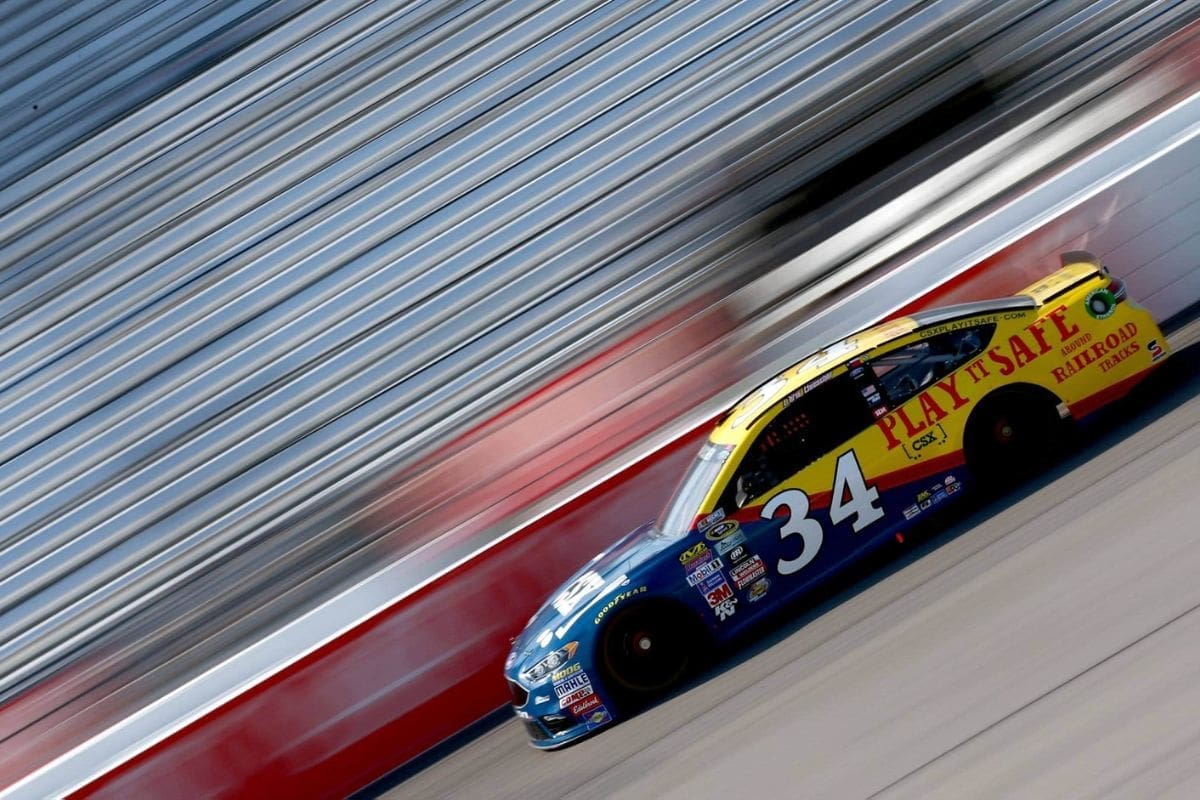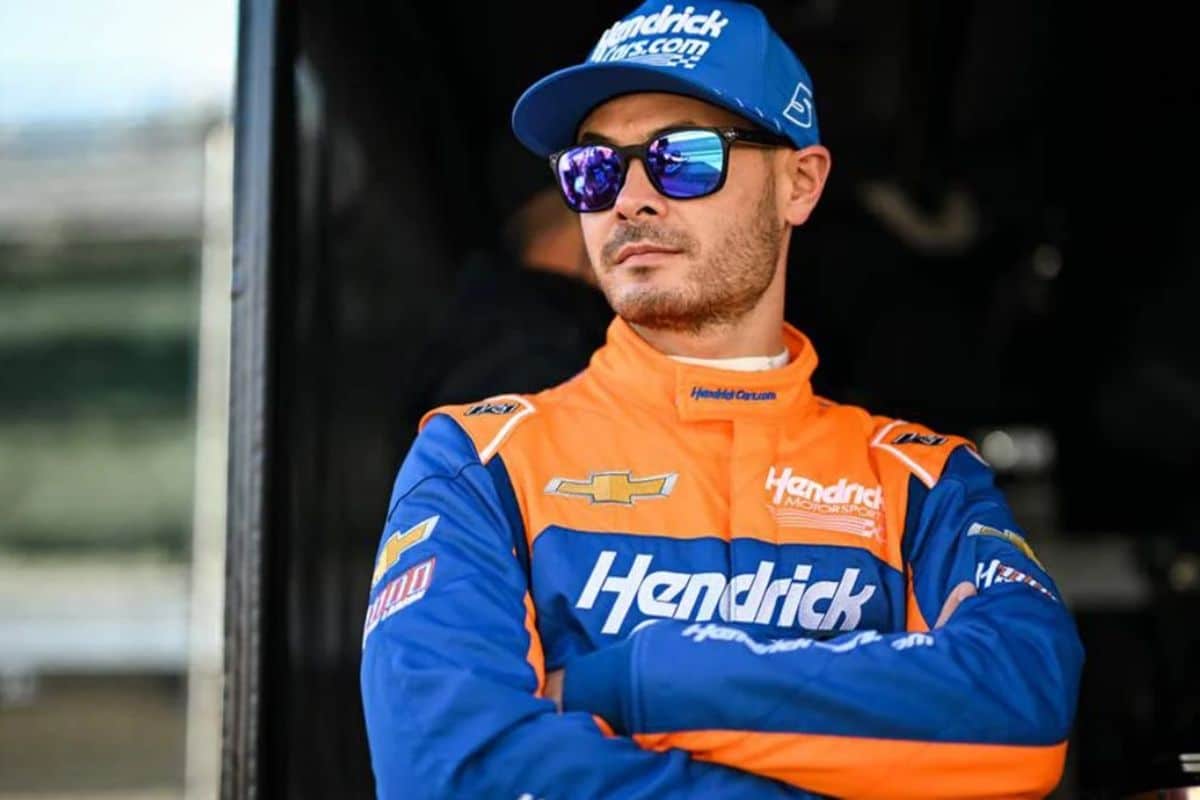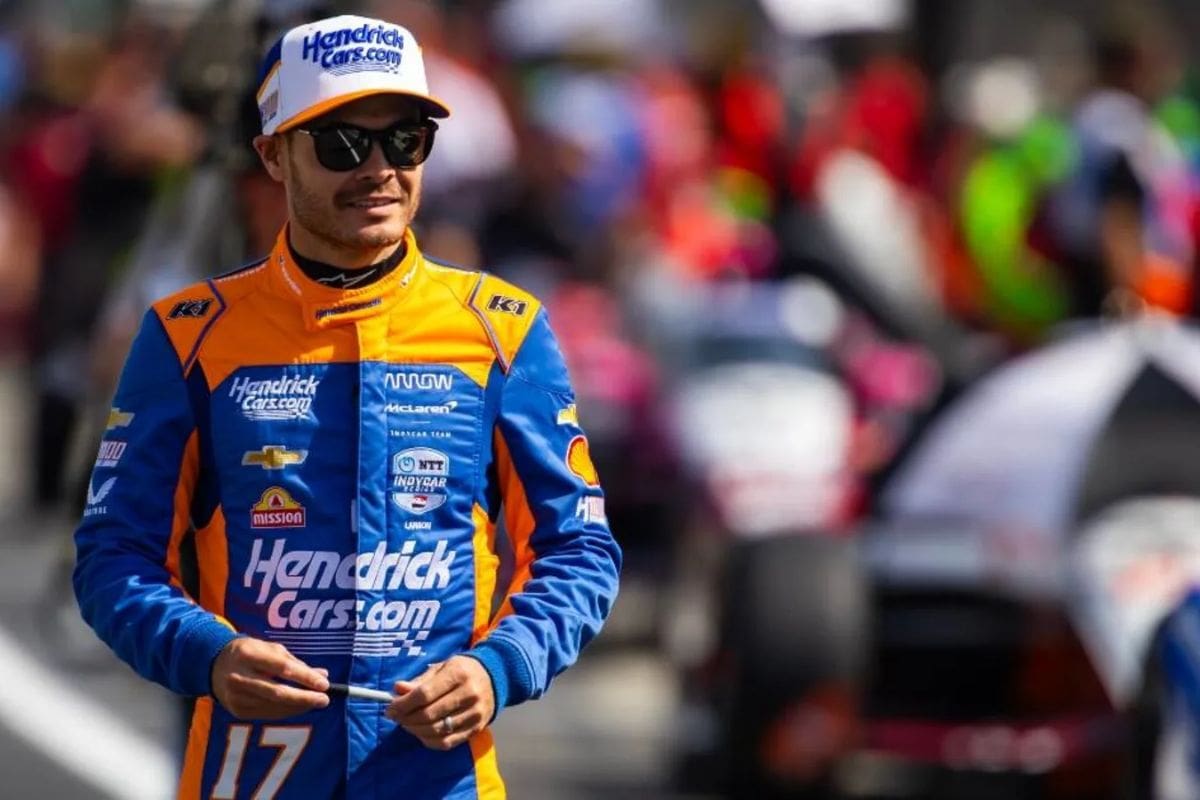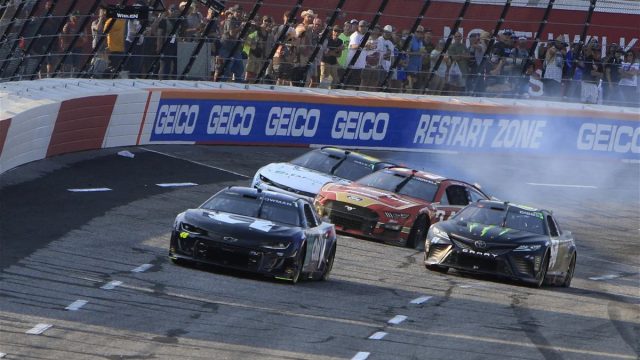Freddie Kraft Accuses Penske of Robbing: Freddie Kraft’s recent accusations against Roger Penske have sparked significant debate within the racing community, as Kraft suggests Penske may be exploiting NASCAR’s delayed decision on Kyle Larson‘s playoff waiver to gain a competitive edge. This situation highlights the intricate balance of regulatory decisions and their widespread effects on team strategies and competitive fairness. While Penske’s dual presence in NASCAR and IndyCar adds layers of complexity, the delay in addressing Larson’s waiver raises questions about potential biases and the integrity of competitive processes.
Key Highlights
- Freddie Kraft claims Roger Penske is manipulating NASCAR’s waiver decision for competitive advantage.
- Kraft suggests Penske’s influence delays NASCAR’s response on Kyle Larson’s waiver.
- The waiver drama allegedly benefits Penske’s teams by keeping Larson out of the playoffs.
- Kraft argues Penske leverages his dual ownership in NASCAR and IndyCar to sway decisions.
- The controversy highlights concerns over fairness and integrity within NASCAR.
Controversy Surrounding Kyle Larson’s “Double” Attempt
The controversy surrounding Kyle Larson’s audacious attempt to complete ‘the double’ has ignited a heated debate within the NASCAR community, highlighting underlying tensions and differing perspectives on the implications for the sport. ‘The double’—competing in both the Indianapolis 500 and the Coca-Cola 600 on the same day—remains one of the most grueling challenges in motorsports. Since Tony Stewart’s successful endeavor, no driver has replicated the feat, making Larson’s ambition both commendable and contentious.
Central to the debate are the logistical and physical demands placed on a driver attempting such a feat. The Indianapolis 500 and the Coca-Cola 600 are held on the same day, requiring a rapid shift between venues and an extraordinary level of stamina. Critics argue that the dual commitment could compromise Larson’s performance and safety in both races, potentially diminishing the competitive integrity of NASCAR events.
Furthermore, Larson’s participation in ‘the double’ raises questions about the allocation of resources and support within the Hendrick Motorsports (HMS) team. While some view it as a validation of Larson’s versatility and commitment to the sport, others perceive it as a distraction that could undermine HMS’s focus on the NASCAR season. This duality highlights broader concerns about the balance between individual ambition and team cohesion.
The situation is further complicated by the broader political landscape of American motorsports. The actions and reactions of influential figures like Roger Penske, who holds significant sway in both NASCAR and IndyCar, add layers of complexity to the issue. As the debate continues, it encapsulates the evolving dynamics and competing interests within the racing community, reflecting a sport in flux.

Roger Penske’s Potential Gain and NASCAR’s Delayed Response
As the debate over Kyle Larson’s ‘double’ attempt persists, attention shifts to Roger Penske’s potential gains from the situation and NASCAR’s conspicuous delay in addressing the incident. NASCAR’s historical leniency in granting waivers makes its current reticence striking. The updated standings, particularly highlighting Larson’s playoff points at zero, emphasize the gravity of the situation and the unusual nature of NASCAR’s response.
Roger Penske, a significant figure in the sport, stands to benefit substantially from the delay. The absence of a waiver for Larson could disrupt the competitive balance, providing Penske’s teams with an advantageous position in the championship race. This potential gain for Penske is not lost on industry observers, including Freddie Kraft, who suggests that Penske could be strategically navigating within the existing rules to optimize his team’s prospects.
“IndyCar benefited way more. ….I think you had a lot of extra eyes on it due to the fact that Kyle Larson was running it.”
“They’re trying to pull from our audience; we’re not ever trying to pull from theirs. I think Kyle Larson is the most stated name in all of motorsports in America.” – Kraft
The mechanics of NASCAR’s decision-making process are opaque, adding layers of complexity to the issue. Historically, such delays in issuing waivers are uncommon, especially when the infractions or circumstances are clear-cut. This deviation raises questions about whether external influences or strategic considerations are at play. The delay in resolving Larson’s status could be interpreted as NASCAR’s attempt to recalibrate the competitive dynamics, albeit at the cost of transparency and consistency.
Analysis of Roger Penske’s Strategic Influence
Examining Roger Penske’s strategic influence reveals a carefully coordinated approach to leveraging competitive advantages within NASCAR’s regulatory framework. As a titan in the motorsport industry, Penske’s ownership extends beyond Team Penske to include the Indianapolis Motor Speedway and the IndyCar series. This extensive reach provides him with a unique vantage point to shape and exploit cross-series opportunities.
Penske’s orchestration of Kyle Larson’s attempt at ‘doing the double’ — competing in both the Indianapolis 500 and the Coca-Cola 600 on the same day — highlights his strategic expertise. Such a move, while challenging, is designed to optimize exposure and competitive gains across both NASCAR and IndyCar platforms. By facilitating Larson’s participation, Penske not only boosts his team’s visibility but also taps into the intricacies of NASCAR’s waiver policies, which can allow a driver to miss a race without losing playoff eligibility.
Penske’s influence on regulatory interpretations and competitive policies within NASCAR is evident. His deep involvement in the sport allows him to effectively navigate and sometimes influence the rulebooks to create favorable conditions for his team. This strategic navigation is not merely confined to on-track performance but extends to administrative and regulatory dimensions, which are often less visible but equally impactful.
Moreover, Penske’s dual ownership positions him to foster synergies between NASCAR and IndyCar, potentially swaying decisions that benefit his broader business interests. His strategic influence is therefore a blend of leveraging regulatory knowledge, optimizing cross-series participation, and capitalizing on his expansive motorsport network. This multifaceted approach highlights why Penske remains a formidable figure in the racing world, adept at turning regulatory subtleties into competitive advantages.
NASCAR’s Dilemma and Potential PR Fallout
Balancing the intricate interplay between competitive integrity and public relations, NASCAR is confronted with a pivotal decision regarding Kyle Larson’s playoff eligibility following his high-profile ‘double’ attempt. As a key figure in the sport, Larson’s exclusion from the playoffs could have significant implications, both concerning competitive balance and public perception.
Larson’s efforts have not gone unnoticed; he has secured two race victories this season and led the points standings before his ‘double’ attempt, a feat that serves to highlight his skill and dedication. Given his stature and the fan base he commands, NASCAR’s ruling on his eligibility carries profound consequences. A strict stance might preserve the sport’s competitive integrity but could simultaneously alienate a substantial portion of its audience.
The notion of competitive fairness is paramount in any sport. However, the optics of sidelining a prominent and successful driver like Larson could be perceived as excessively punitive, potentially eroding fan trust. The waiver drama, highlighted by Freddie Kraft’s accusations against Penske, compounds the issue, adding layers of complexity to NASCAR’s decision-making process.
In the domain of public relations, NASCAR must consider the broader narrative. Excluding Larson might be viewed as a move that diminishes the excitement and star power of the playoffs, potentially dampening fan engagement. Conversely, granting him leniency could be interpreted as favoritism, undermining the sport’s credibility.
Thus, NASCAR stands at a crossroads where every potential decision reverberates beyond the racetrack. The resolution of this dilemma will undoubtedly serve as a defining moment, shaping not only the current season but also influencing the future dynamics between the sport, its stars, and its devoted fan base.

Analysis of Potential Repercussions
The potential repercussions of NASCAR’s decision on Kyle Larson’s playoff eligibility extend far beyond immediate competitive concerns, impacting the sport’s integrity and its relationship with a passionate fanbase. As noted by journalists Jeff Gluck and Jordon Bianchi, the stakes are high in how NASCAR handles Larson’s waiver situation. If NASCAR chooses not to grant the waiver, it would need to justify this decision transparently to avoid alienating its audience. The current confusion, highlighted by NASCAR’s recent points table showing Larson’s points as zero, highlights the delicate position the governing body finds itself in.
“You’re talking about how this guy’s having perhaps the best season of anybody and is not gonna be a part of the playoffs. Good luck explaining that one to your new Netflix crowd. Good luck with that one.” – Gluck
From a competitive standpoint, denying the waiver could disrupt the playoff landscape significantly. Larson’s 17 playoff points, now at risk, were earned through consistent performance and strategic excellence. This potential recalibration of the points system might be perceived as undermining the meritocratic nature of the sport, where performance is meant to be the sole determinant of success. Such a move could erode trust among teams and drivers, leading to long-term implications for competitive fairness.
Furthermore, the fanbase, which is deeply invested in the sport’s integrity, might view this as a precedent-setting decision. NASCAR must balance the enforcement of rules with the expectations of fairness and consistency. A failure to navigate this balance could result in diminished fan engagement and loyalty, especially if the rationale behind the decision is not convincingly communicated.

News in Brief: Freddie Kraft Accuses Penske of Robbing
The ongoing waiver controversy involving Kyle Larson emphasizes the intricate dynamics of regulatory interpretation within NASCAR.
Freddie Kraft’s allegations against Roger Penske highlight the potential strategic benefits accrued by Penske’s teams amidst the regulatory delay.
This situation sheds light on the broader implications of influential stakeholders on the competitive balance within the sport.
Consequently, NASCAR faces not only operational challenges but also potential public relations repercussions, necessitating a careful and transparent resolution to maintain the integrity of the competition.
Also read: Joey Logano’s Misery” href=”https://slicksandsticks.com/2024/05/21/freddie-krafts-shocking-confession-on-joey-loganos-misery/” rel=”bookmark”>Freddie Kraft’s Shocking Confession on Joey Logano’s Misery
